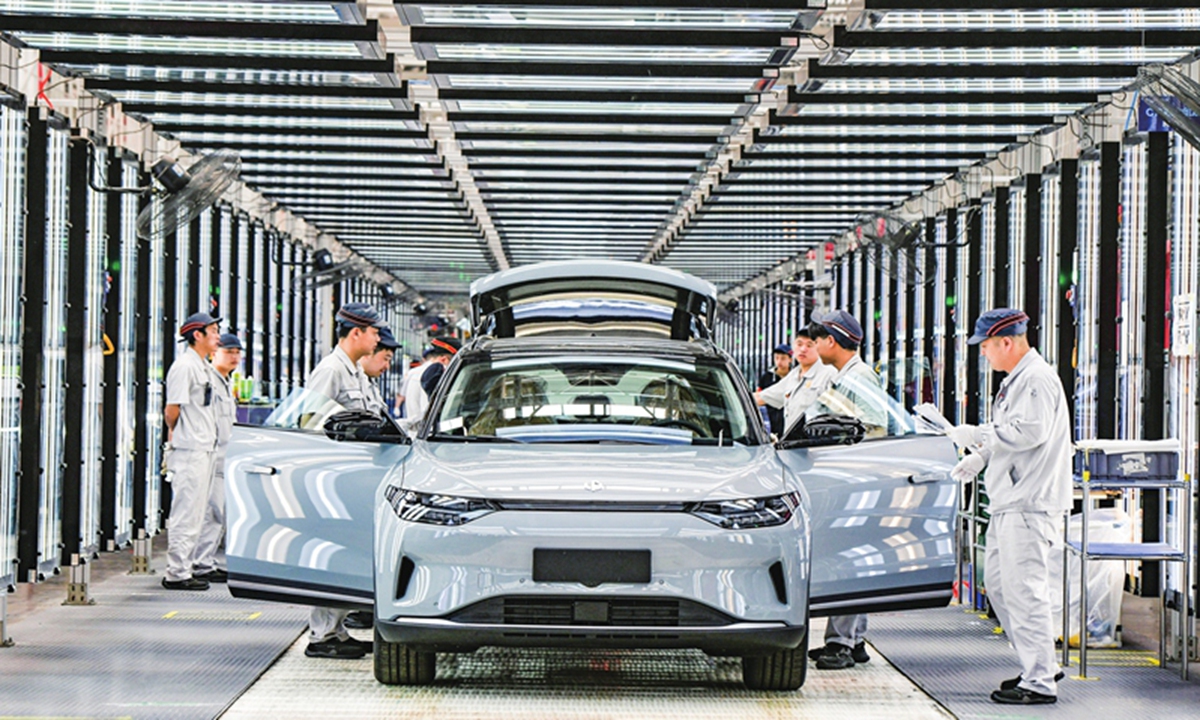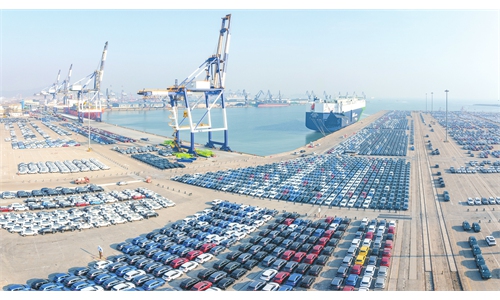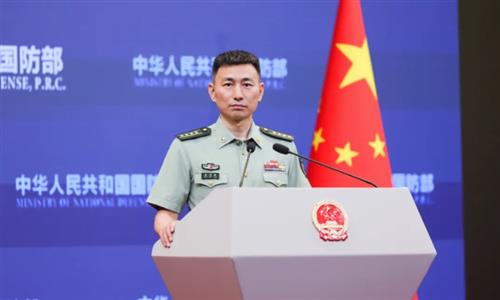NEVs to account for no less than 30% of China’s official car procurement, in boost for sector

Workers complete assembling an electric vehicle (EV) at China's EV start-up Leapmotor in Jinhua, East China's Zhejiang Province on April 1, 2024. The smart EV factory delivered 14,567 new vehicles in March, a yearly increase of 136 percent. Photo: VCG
China's Ministry of Finance (MOF) said in a notice on Monday that the proportion of new-energy vehicles (NEVs) in the total annual official vehicle procurement should not be less than 30 percent in principle if NEVs can meet the actual official needs.
The procurement ratio for NEVs should be 100 percent for official vehicles with relatively fixed routes and single usage scenarios, and mainly operating in urban areas such as vehicles for confidential communication. NEVs should also be prioritized in the use of vehicle leasing services, according to the MOF notice.
The notice also said that procuring entities should enhance the management of government procurement needs for official vehicles, fully understand the functions and performance of NEVs, and take the lead in using NEVs in line with actual usage requirements.
The move will help boost market demand for NEVs, and will be conducive to optimizing the government procurement structure, enhancing both quality and effectiveness, Wang Peng, an associate research fellow at the Beijing Academy of Social Sciences, told the Global Times on Monday.
By setting an example through government procurement, the move can promote the development of green consumption concepts and habits across the society, as well as the healthy growth of the NEV industry, Wang said.
The MOF notice came as some local governments have stepped up the purchase of NEVs. On November 6, 313 NEVs were procured for 257 administrative institutions in South China's Guangdong Province, according to a post on the official website of the provincial government. Since the launch of a program to promote NEVs for official use in 2022, the province has purchased 627 NEVs under the program.
Meanwhile, the proportion of NEVs in the renewal and allocation of official vehicles in Guangdong has exceeded 60 percent, making it the province with the highest number of NEVs for official use in the country, according to the post.
Following the MOF's move on Monday, the proportion of NEVs in government procurement is expected to increase further in the future, which will not only provide more market opportunities and development space for NEV firms but also encourage industry players to continuously improve product quality and services to meet the requirements of government procurement and market demand, Wang noted.
It is estimated that NEV sales in 2025 will be around 16.5 million units, including exports, with a growth rate of nearly 30 percent, and domestic sales volume is expected to reach 15 million units, Zhang Yongwei, vice-chairman and secretary-general of the China EV 100, an NEV industry think tank, was quoted by media as saying on Monday.
Relevant policies are also creating market opportunities for foreign NEVs. In July, several state-owned enterprises in the Shanghai pilot free trade zone procured a batch of Tesla Model Y vehicles for corporate use, marking Tesla's entry into China's government procurement arena, the Xinhua News Agency reported.
Tesla's entry into the procurement lists of state-owned enterprises reflects the openness and inclusiveness of China's NEV market, Wang said.



